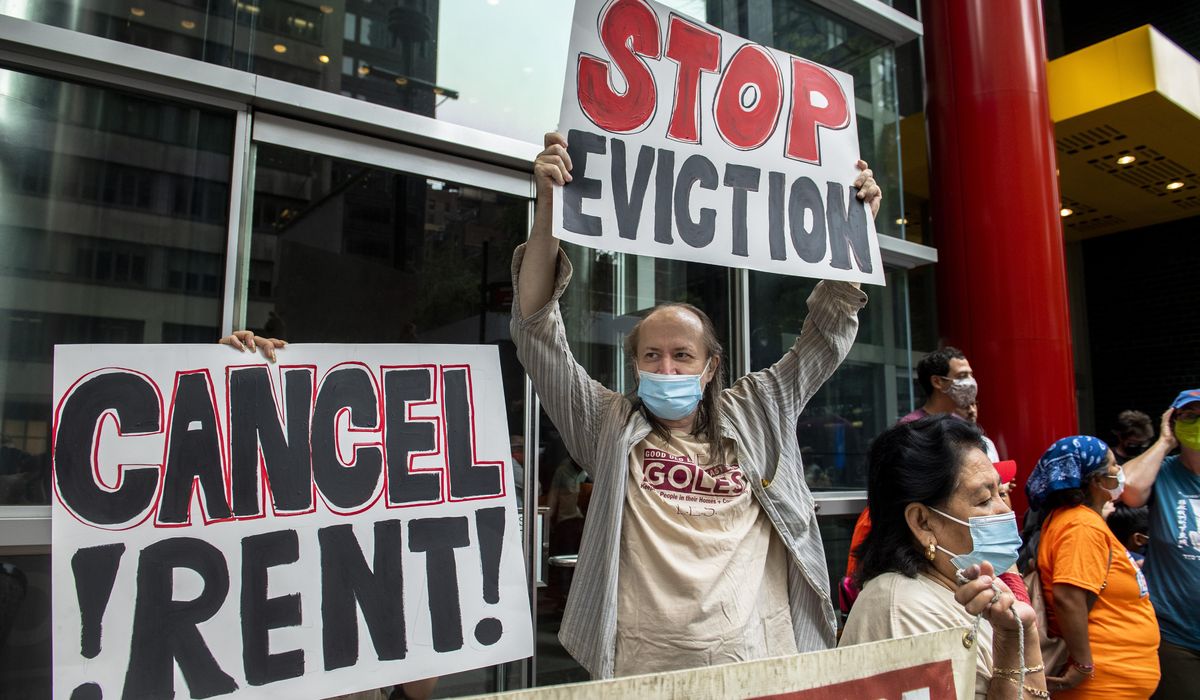
A federal appeals court in Washington on Friday declined to halt the Biden administration’s eviction moratorium, which is set to remain in place through October.
The move by a three-judge panel of the D.C. Circuit Court of Appeals is likely to present a showdown at the Supreme Court over the legality of the administration’s ban on evictions.
A group of landlords from Alabama and Georgia, who have not been able to remove tenants who can’t pay their rent, have been challenging the moratorium in court, asking federal judges to block its enforcement.
A lawyer representing the landlords did not immediately respond to a request for comment about whether they will appeal, but the group suggested last week that they will take the matter back to the high court if necessary.
In June, the Supreme Court voted 5-4 to leave the eviction moratorium in place.
Justice Brett M. Kavanaugh said he thought the government had overreached, although he voted with the majority leaving the moratorium intact until July 31, the original expiration date of the eviction ban.
In the order, Justice Kavanaugh said the Centers for Disease Control and Prevention, which ordered the moratorium, would need congressional authority to extend the ban beyond July 31.
He said he did not move to strike down the moratorium immediately because “those few weeks will allow for additional and more orderly distribution of the congressionally appropriated rental assistance funds.”
Justices Amy Coney Barrett, Neil M. Gorsuch, Samuel A. Alito Jr. and Clarence Thomas would have voted to strike down the ban on evictions immediately.
The CDC, which ordered the moratorium because of the shutdowns prompted by COVID-19, extended its ban past July 31 because of the spread of the highly contagious delta variant.
The eviction moratorium prevents landlords from evicting tenants, so they are unable to remove a renter who can’t pay rent.
Property owners across the country, including struggling mom-and-pop operators, have been asking the nation’s courts why landlords are expected to take a financial hit while non-paying tenants are protected by the moratoriums.
The moratorium was first issued in September 2020 under former President Trump, and the government has continued to renew it.
Thank you for being a Washington Times reader. Comments are temporarily disabled. We apologize for the inconvenience.
Health, The New York Today




